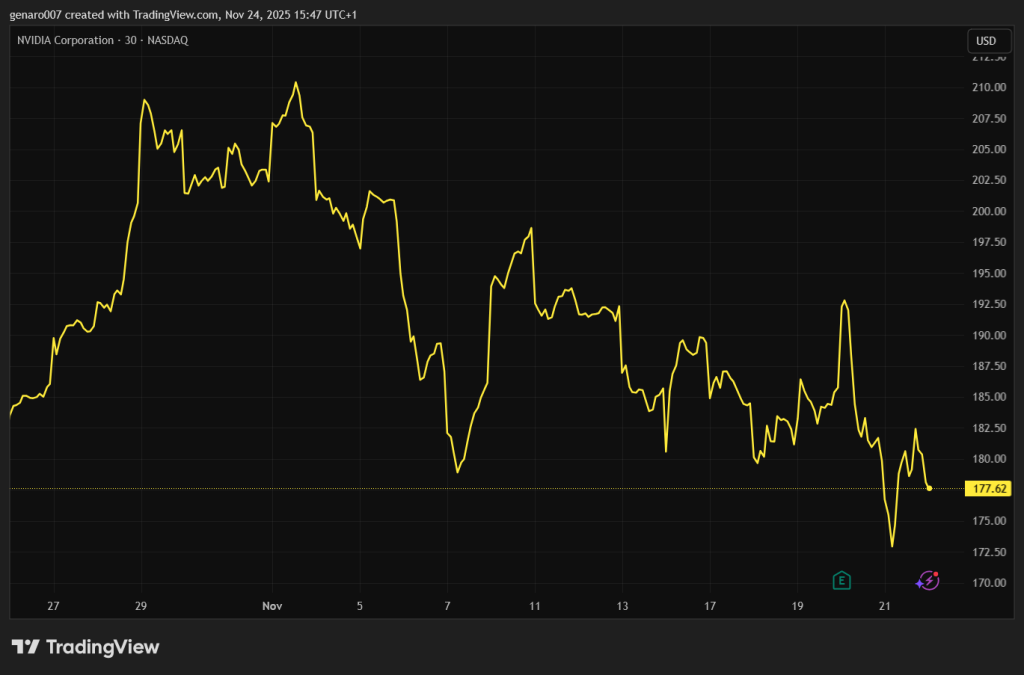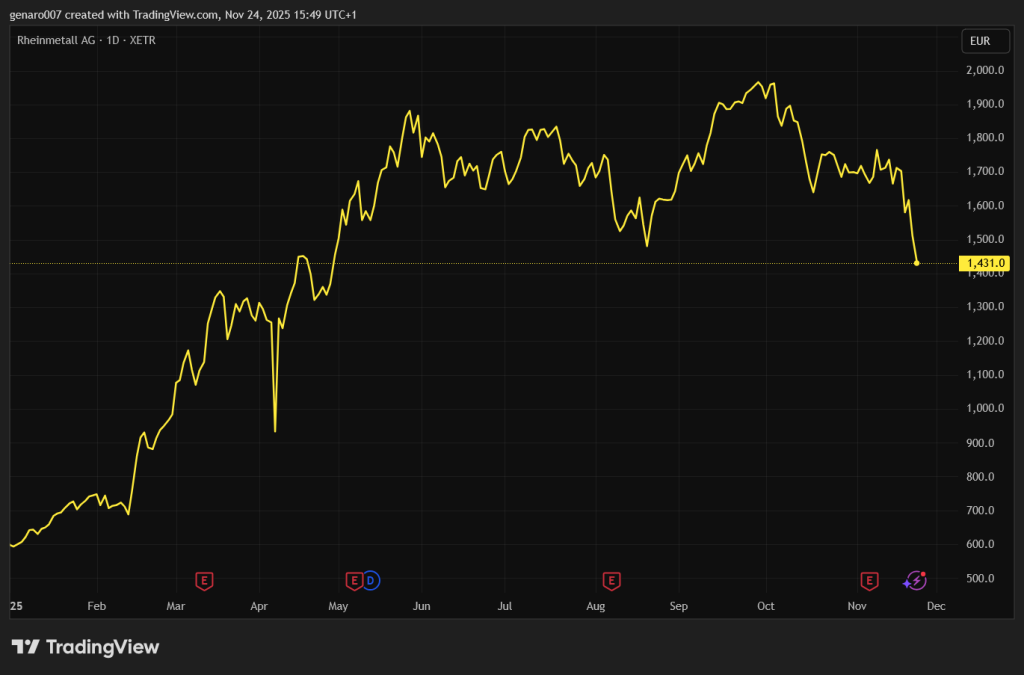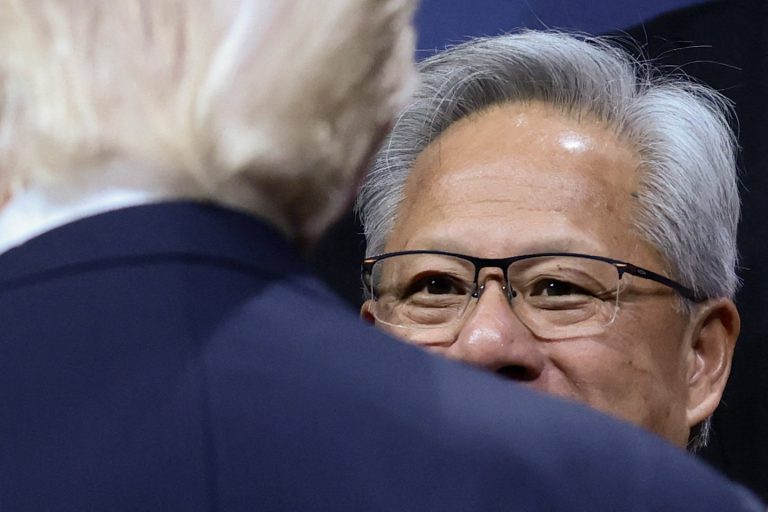For the past two years, the markets have been consistently optimistic and have learned to sweep all worries under the rug, with the Fed soon to cut rates and artificial intelligence increasing the profitability of virtually all companies.
But now it turns out that expecting a return to a zero interest rate policy is more of an investor wish than a likely scenario. And even if the markets were to return to this regime, it cannot be considered a success. Central banks cut rates primarily because something has gone wrong.
Equally, more and more investors are wondering whether stocks in the AI sector are overvalued. That is a good question, but it needs to be put in the right context.
Investors should keep a cool head and not immediately think of a crash or that the share price of technology companies is so overvalued that it does not make sense. It doesn't. Technology stocks are expensive, but that doesn't mean they are worthless companies. What is perhaps currently mispriced is the speed of adoption of artificial intelligence (AI) into everyday and corporate life. It may take considerably longer to reach its full potential.
At the same time, however, investors need to shake off the illusion that AI will solve all problems. It is already showing that in some fields - where analysts predicted a major shift - its impact will be minimal. An example is logistics, which has developed its own software capable of solving problems in real time.
Nvidia comes up with the numbers
Just as the market was asking these fundamental questions, Nvidia's earnings season arrived. Even before the announcement, there was talk that if the mood of the markets was to change fundamentally, Nvidia's results had to be more than just good - they had to be excellent. That's what eventually happened, but it still didn't help the markets.
What were its numbers specifically? Third-quarter sales showed 62 percent year-over-year growth. So Nvidia remains a fast-growing company - even by the standards of technology companies. For the latter, annual growth of as little as one-fifth is considered very good.
Meanwhile, Nvidia is growing significantly faster than usual. This figure alone shows that the company is still in a phase of major expansion. Only when the year-on-year growth falls to 20 to 30 per cent can we talk about stabilisation. And it is at that point that a more fundamental downward adjustment of the share price is imminent from a fundamental point of view.

Total sales amounted to $57 billion, of which $51.2 billion was attributable to datacenter chips. Nvidia also pleased investors with its outlook - it raised its revenue estimate for the next quarter to $65 billion.
And the best part: those numbers don't even count a single chip sold in China. Nvidia executives have consistently pressed the U.S. administration that an across-the-board ban on chip exports to China solves nothing - on the contrary, it forces Chinese engineers to find their own solution. With Donald Trump, changes of opinion are frequent and rapid. The situation in the Chinese market can change at any time. If that were to happen, Nvidia would immediately add several billion dollars to its current revenues.
A euphoria that didn't last long
Nvidia CEO Jensen Huang tried to reassure investors not only with numbers, but also with words. He himself does not consider artificial intelligence to be an investment bubble.
"There is a lot of talk about it, but we don't observe that it is a bubble in the slightest yet," he stressed. On the most powerful Blackwell chips, he was even more optimistic: "Blackwell sales are off the charts. Cloud GPUs are sold out."
Following the release of these excellent results, the stock rallied in the after-market. The growth gradually diminished as the market opened. On Thursday, November 13, Nvidia's share price was still in the green in the morning. The turning point came at 10:37 a.m. New York time, when a huge block of shares arrived on the market for sale. Once again, the markets began to wonder how the whole artificial intelligence thing was actually going.
Big name sales and the garden of doubt
No one knows exactly why the markets started doubting just now. Perhaps the fact that many well-known investors have sold their positions in Nvidia is to blame. We've already talked about Michael Burry. Japan's SoftBank also divested a large block of shares. Peter Thiel also sold shares - about 538 thousand units. This sale should have brought him roughly another $100 million.
Interestingly, from a fundamental standpoint, Palantir's stock (which Thiel co-founded) is several times more overpriced than Nvidia's. When comparing fundamentals, Nvidia doesn't do badly - much more expensive are AMD or Broadcom stocks, for example.
Nvidia's stock decline thus remains largely a mystery.
For whom is peace in Ukraine bad news?
America put forward its proposal to end the war in Ukraine at the end of the week. Investors are not so much interested in the individual points of the plan, but above all in the signal that the US has thus sent to the world: Trump wants to end the war. If its specific form does not go through, it may mean that the United States will withdraw completely and leave the conflict to Europe and Ukraine alone to resolve. This could lead, in effect, to a relatively quick end to the fighting.
The Moscow Stock Exchange has reacted very positively to the news of a possible peace - the end of the war would mean a potential return of foreign investors. The price of natural gas has also fallen, which is good news for all Europeans ahead of the coming winter. In the event of peace, a lower oil price should follow.
However, those who were not happy about a possible peace were the shareholders of arms companies. Germany's Rheinmetall has written down more than 14 per cent in the last five days. When investing according to current "trends", the key is not only to identify the trend correctly, but above all to exit early once market sentiment turns.
Rheinmetall shares are significantly overpriced. Although the end of the war in Ukraine will not automatically mean the end of interest in armaments, this stock can weaken very quickly and return to a far more realistic valuation.

What to watch this week
Of the macroeconomic numbers, Wednesday's release of US inflation will have the greatest potential to influence the markets. Investors will, of course, continue to keep a close eye on the technology sector as a whole. It is highly likely that they will become increasingly choosy and buy or sell individual companies, rather than the whole sector at once.

The big topic of the coming week will be the price of bitcoin. A return above the $90 thousand mark would really mess with investors' heads - in fact, more and more commentators are admitting that bitcoin has entered a bear phase that should last for about a year. Another significant drop would only confirm this bearish trend.
